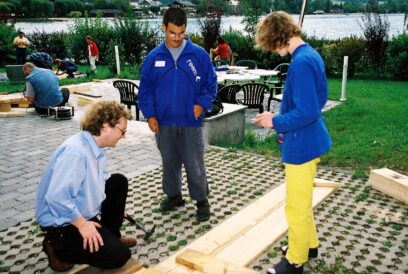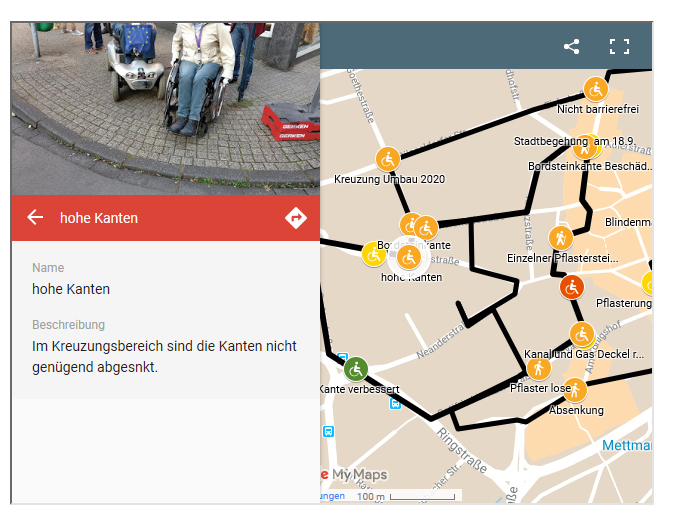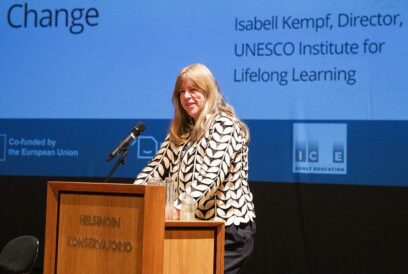

In Germany, a questionnaire about difficulties with the use of computers found that “digital complexity” is a real and crucial barrier for many older people. Image: Shutterstock
In Germany, a questionnaire about difficulties with the use of computers found that “digital complexity” is a real and crucial barrier for many older people. Image: Shutterstock
All seniors did not familiarize with modern information and communication tools in their working lives. But now, since digital competence is strongly linked to wider well-being and autonomy, it is time for them to learn. Therefore, there is a need for low-threshold, close to home, meaningful opportunities to learn digital skills.
It might be hard to believe, but in Europe there are still people who are not online. Many of these people are among the elderly.
And since communication and sharing information via online media is increasingly the norm, this group is being excluded more and more. Whether it is information about transport links, ticket orders or map services – almost nothing works today without online access, or one ends up paying more.
A look at the statistics reveals big differences between countries when it comes to the elderly and their digital skills. According to Eurostat web tool from 2017, 82 percent of people over 65 in Norway use internet at least once a week. In Greece, on the other hand, only 14 percent of the people in this age group use internet on a weekly basis.
In Germany alone, around nine million people over the age of 60 are offline. This particularly includes older, single women on low incomes.
Digital confidence is linked to wider well-being
A current study capturing German citizens’ digital competence shows that there are clear differences between age groups. Whereas 79 percent of 14- to 29-year olds feel quite safe online, only 41 percent of 60- to 69-year olds and 36 percent of those over 70 years of age feel the same.
Digital competence is strongly linked to wider well-being and autonomy. The authors of the study point out that digital competence enables older people to live as independently as possible in their own homes, for example through online purchases and participation in digital media.
This increases satisfaction and saves high costs for the health- and care systems. Those who can order and have their purchases delivered online can also cope with everyday life despite restrictions to their own mobility.
Opportunities needed close to home
Adult education offers various tackles for the challenges that senior citizens face with digital competence.
In Mettmann, a town near Cologne, Germany, a charity called Arbeiterwohlfahrt has come up with a project that not only teaches seniors how to use online media, but also makes them developers of a product customised for their own age group.
During the project, named Road Safety for Seniors, a group of older people took a close look at their own district and explored which corners are not accessible for walking frames and wheelchairs. They then entered this data into an online map service app and put it online.
Now other seniors can see how they can get through the district without obstacles.

In Mettmann, a group of older people explored which corners of their own district are not accessible for walking frames and wheelchairs. They then entered this data into an online map service app and put it online. Image: Arbeiterwohlfahrt
Low-threshold computer courses work well
It is very important for opportunities to learn digital skills to be offered as close to home as possible and to make sense for older users.
This is an approach that Siegfried Klarhöfer from the NetComputer Learning Association follows. He offers computer courses for the elderly in clubs or town houses in the Berlin district of Marzahn-Hellersdorf. “Support close to home is very important to us because we also want to reach people with limited mobility,” Klarhöfer says.
A maximum of 12 people take part in each course, and the topics covered are decided on by the participants themselves. Usually, smaller projects are realised and learned in an application-oriented manner.
During the meetings, arrangements are also made for required home visits, including desktop and router problems. Between the actual meeting dates, the participants communicate via social media groups.
Support close to home is very important to us because we also want to reach people with limited mobility.
Klarhöfer explains that people attending their courses range from early 60s to early 80s in age – most of them have not had much to do with modern information and communication tools in their working lives.
“From the saleswoman who worked at the till for many years to the bricklayer who can handle trowel and cement mixer but had nothing to do with computers – these are people who did not have the opportunity to get close to the digital world and now finally they want to know about it.”
Digital complexity is a crucial barrier
Studies show that internet affinity and internet competence heavily depend on the social milieu in which one moves.
A German milieu study on internet behaviour among over 60-year-olds diagnoses seven internet milieus for older people: internet-insecure, careful sceptics, responsible establishment, carefree hedonists, efficiency-oriented performers, sovereign realists and network enthusiasts.
Milieus away from the internet are more pronounced among the over 60s, particularly in the lower and lower middle classes. Their attitude towards the internet is characterised by uncertainty and excessive demands, and this factor is fuelled by the fact that many computers are not designed to meet the needs of older people.
I try to click “help”. I don’t understand a word. My patience runs out immediately.
A questionnaire about difficulties with the use of computers found that “digital complexity” is a real and crucial barrier for many older people.
For example, many commands and sudden pop-up windows can seem simply incomprehensible to seniors. The requirements that the devices place on users may scare away even those who would otherwise be keen to learn to use computers.
A response to the questionnaire says this in the words of an elderly person.
“I try to click ‘help’. I don’t understand a word. My patience runs out immediately. That is not my language. It does not work.”
Author






